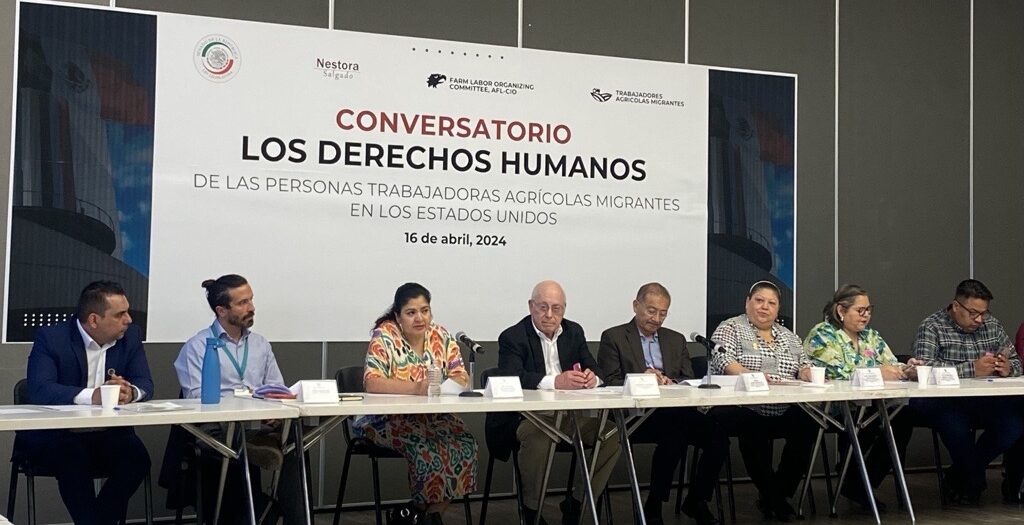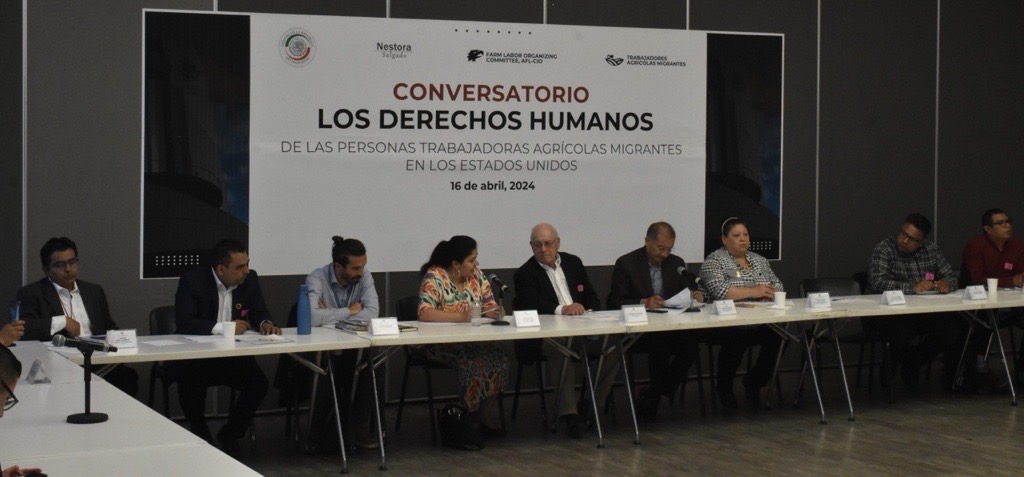This week the Farm Labor Organizing Committee went to Mexico City and met with elected officials in Mexico to discuss the plight of migrant farm workers and represent our members’ concerns in a groundbreaking meeting at the Mexican Senate.
FLOC and Senator Nestora Salgado, the secretary of the human rights commission in the Mexican Senate, convened the forum A Discussion on the Human Rights of Agricultural Migrant Workers in the United States at the Senate of the Republic of Mexico. Various elected officials and human rights groups gathered to discuss the major issues and concerns of Mexican farm workers who migrate to the United States to work in the fields.

FLOC raised workers’ concerns and indicated how the government of Mexico can play a critical role in protecting and supporting migrant workers before and after they go to the United States.
The main topic of conversation between FLOC and elected officials in Mexico was the lack of legal mechanisms migrant workers have in the United States and Canada to organize and actualize their right to freedom of association. Concrete steps were agreed upon that will be announced in the coming months.
In addition, other critical issues discussed included the issue of bribes at the borders that our members are forced to pay to corrupt officials, the use of farm labor contractors that often result in workers paying exorbitant and illegal recruitment fees, and the lack public policies that support migrant workers once they age out of agricultural work.
FLOC President Baldemar Velasquez spoke on the meetings stating, “We are pleased to hear the commitments made by the Mexican legislators. These groundbreaking initiatives that will be announced in the coming months are greatly benefited by the participation of the Mexican farmer and peasant organizations. We look forward to their continued collaboration with our efforts to help defend their comrades currently working in the U.S.”

The only way to ensure that migrant workers in the United States and Canada are free from exploitation and enjoy their rights guaranteed to them under local and international law, is through self-determination and representation under a union agreement. The lack of legal mechanism in both countries marginalizes workers and makes them extremely vulnerable to exploitation.
The meetings in Mexico allowed FLOC to meet with our counterparts and to share in cross border solidarity amongst human rights groups and peasant farmer groups. Our organizing extends beyond the United States, we are building allies and institutions that support migrant agricultural workers across North America.
We will continue to organize and build worker power in agriculture.
Hasta La Victoria!
